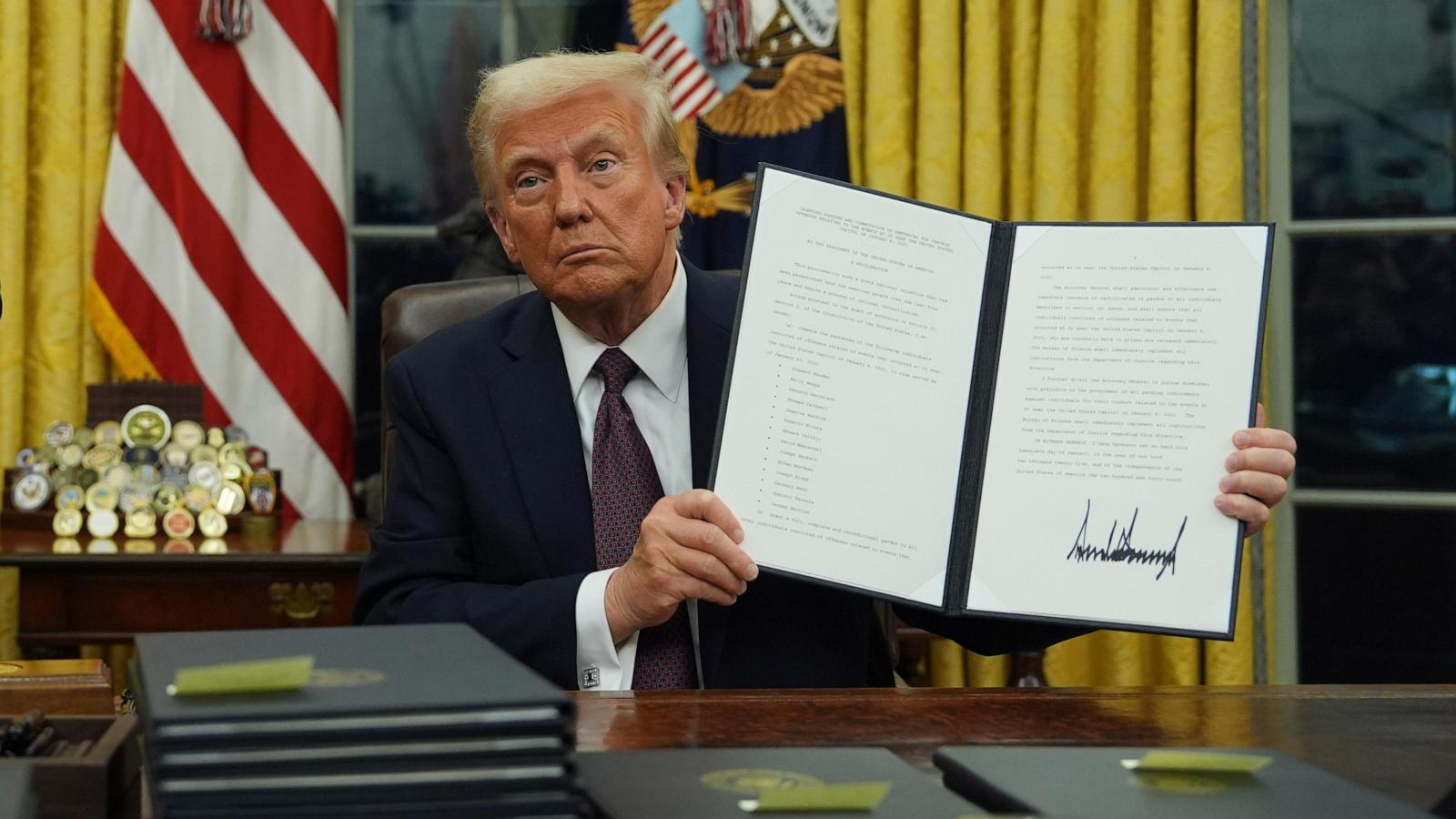Trump's Shock Move: Will the EV Revolution Be Reversed?
Get ready for a potential upheaval in the American automotive landscape! President Trump's recent executive order threatens to dismantle policies promoting electric vehicles (EVs), sparking fierce debate and uncertainty. This bold move aims to unleash American energy, but will it come at the cost of environmental progress? The implications for the future of electric cars in the US are enormous, affecting not just consumers but also the nation's environmental goals and the entire auto industry. Let's dive into the details.
Trump's Executive Order: A Full-Throttle Reversal on EVs?
Trump's executive order promises a major rollback of policies aimed at encouraging EV adoption, characterizing previous policies as a 'preposterous' mandate, aimed to hinder economic growth by stifling consumer choice and forcing EV purchases. The order signals a potential repeal of the $7,500 EV tax credit, creating further friction in the ongoing debate around climate change policies and consumer preferences. This isn't just about tax credits; it could affect billions in funding allocated for the development of EV charging infrastructure, impacting the long-term viability of EVs in America.
Impact on Charging Stations and Infrastructure
The planned freeze on funding for the ambitious plan to install 500,000 EV chargers by 2030 threatens to derail this critical piece of infrastructure development. This move will lead to severe setbacks in the expansion of nationwide charging networks, potentially reducing consumer confidence in EVs by increasing range anxiety. Such actions send strong signals to both consumers and manufacturers, possibly stalling industry progress and investments.
What Happens to California's EV Mandate?
President Trump has vowed to terminate the federal waiver allowing California to independently set its own aggressive emission standards and phase out gas-powered car sales by 2035. This could have far-reaching effects as numerous other states align with California's vehicle emission regulations. It could halt the progress in reducing emissions across several states who previously planned to follow suit with California's leadership.
The Broader Implications: Climate Change and Economic Impacts
This isn't just a fight about cars; it’s a fight about America's future trajectory in addressing climate change. Light-duty vehicles are significant greenhouse gas contributors. By curbing incentives and regulations around EVs, Trump’s policies could lead to a dramatic uptick in carbon emissions and further exacerbate climate change effects.
Economic Disruptions and Unintended Consequences
Despite its pro-consumer rhetoric, some speculate this approach might prove economically disruptive to an increasingly dynamic sector focused on sustainable manufacturing. While it might temporarily boost gas car sales, the order creates an aura of uncertainty that may repel investments and create instability within the nascent EV sector and associated job markets. The market has seen early success stories that were buoyed by investments. The longer-term effects could lead to slower technological innovation, negatively influencing international competitiveness.
Potential Legal Battles on the Horizon
Unsurprisingly, Trump's proposed changes have been met with strong pushback from environmental groups. These organizations are likely to initiate legal challenges, leading to further battles in the courts. These legal fights add even more uncertainty to the situation and threaten further delays to progress.
Beyond Politics: What Does the Future Hold for EVs?
While Trump's actions aim to slow the EV revolution, it is not an immediate death-knell for electric car enthusiasts. Existing incentives for purchasing EVs are still active, and there are significant efforts underway to grow EV adoption. Ultimately, several factors outside the realm of regulatory action will contribute to EV adoption, including technology innovations and consumer interest.
Technology Advances Driving Innovation
Independent of the administration, the EV industry is continuously advancing. Continued advancements in battery technology, improved performance capabilities, and price reduction plans, remain instrumental drivers. While challenges may emerge, they provide a framework for maintaining momentum, regardless of regulatory uncertainty.
Growing Consumer Demand
Though facing a bump in the road, consumer preference, coupled with various green initiatives worldwide, suggest a robust global EV market regardless of political machinations. Technological progression, reduced operational costs and better awareness around sustainability issues contribute positively to public interest.
Take Away Points
- Trump's executive order represents a significant shift away from previous policies supporting electric vehicles.
- The order's long-term impact remains uncertain, and legal challenges are expected.
- While a temporary increase in gas car sales is predicted, economic disruption and challenges for the future are likely.
- The EV sector’s continuous technological advancements will be instrumental in overcoming potential setbacks caused by political developments.
- The overall shift towards cleaner energy globally is likely to continue in spite of administrative changes.




